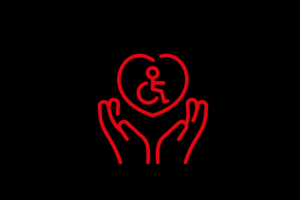Here are some suggestions about how to explain autism to other people – if you would like to.
Who to tell
Remember, it’s your choice whether or not to tell people you are autistic. You might want to keep it private. On the other hand, you might want to tell everyone you know! Either of these responses are OK, or anywhere in between, and it’s also OK if you change your mind in the future.
Your parents may need to tell important adults in your life (e.g. teachers) that you are autistic. This is so that they can arrange any support you need.
Why tell people
There are a few reasons why you might want or need to tell people you are autistic, such as:
- To get help and support when you need it (although you can often get help without saying you’re autistic – everyone needs help sometimes!)
- To help others get to know and understand you
- To be true to yourself
- Because you are proud of your autistic identity
- To help other people feel more comfortable with being different.
How to tell people
So, once you’ve decided to tell someone you’re autistic, what should you actually say? You might want to prepare a short script that you can use to tell people what being autistic means to you. Or if you’d find it easier you could write something on your phone or print something out to show people instead of speaking.
You don’t always need to tell people you are autistic. Sometimes, it is OK to just let people know what you need and this can be enough. For example, you could say:
- I wear ear defenders because I am sensitive to noise.
- Sometimes I need extra thinking time to answer questions.
- Eye contact makes me uncomfortable, but I am still listening to you even if I am not looking at you.
Sometimes people are a bit ignorant and they need you to say you are autistic in order to take your needs seriously. In this case, it can be helpful to tell people you are autistic, then say what you need.
Common responses when you tell people you are autistic
Most people will be understanding and accepting. Some people may be curious and ask questions. Others might be surprised or confused at first, but hopefully they will be willing to learn more over time.
Most people have heard of autism before, but don’t really know much about it. This is because what we know about autism has changed a lot in the past 10 years. Having this new knowledge is great! Unfortunately some people still have old-fashioned ideas that we now know are not true, such as believing that only boys can be autistic, or that all autistic people like trains and are brilliant at maths. It also means that sometimes people don’t understand how things that seem ordinary or enjoyable to them might not be easy or fun for us.
It can be hard to know whether to tell people you are autistic or not. Most autistic people tell some people, but not others because unfortunately some people can have a negative reaction. Just remember that every autistic person is different and you are the expert on your autistic experience.

Source: https://twitter.com/yennpurkis/status/1238589545068646400
Writing Led by Zoe Williams, autistic parent and writer
If you would like to tell others about what being autistic means, this explanation from Autism Level Up is awesome:
What is Autism?
Autism means my brain is wired differently to yours. I’ve got more wiring with more connections, so sometimes I notice and process a lot more things in the world around me than other people, and other times I might not notice or be able to process the things around me at all. More brain wiring means more neurons firing so it can be a lot easier to get overwhelmed and harder to filter through all the information that comes in. The information sometimes travels all over my brain before it actually gets to a place where I can do anything with it. Even though I may pick up on more stuff and things and sounds and sights and senses around me, I might not be aware of all the social stuff going on around me. There’s a lot of invisible-to-me social norms and rules that I don’t even see. You can definitely teach me about those, and explain them to me, but don’t expect me to know how to do it or to do it like you – just like I’ll never ask you to act autistic. That would be ridiculous, right?
Lots of people seem to know that autistic people have sensory and social differences, and that’s true, but it is so much more than that. Since it’s a brain difference, it influences everything – how I interact, think, learn, play, move, feel, sense, communicate, sleep, eat…everything! You might be asking…well, how exactly?
That’s really very complex. Different brain wiring and firing can mean many different things to different autistic people, so make sure to ask the other person about their own unique interests, preferences, and needs (pro tip: you might need to write down that question or text it to them or give them time to process your spoken words, and they might not respond how you expect). Just like you’re probably unique from your friends who are or aren’t autistic, I’m unique from all the other autistic people.
There is so much we can learn about each other so that we can both do our own thing in the world and also understand how others do what they do. Some questions you can think about and ask each other are: What does it look like when you learn? What does it look like when you play? What are your interests? What things make you really tired? How much and how often do you like to be around other people? How much alone time do you need? Do you like to talk, text, work on things together in silence? Do you use mouth words, a device, sign language, or something else to communicate?
It’s hard to make sure we do things differently so we can include more people, but the more types of brains we include, the more ways we have to think about things, solve problems, create and have fun. It’s a win for everyone.



